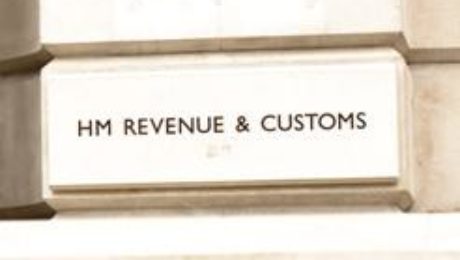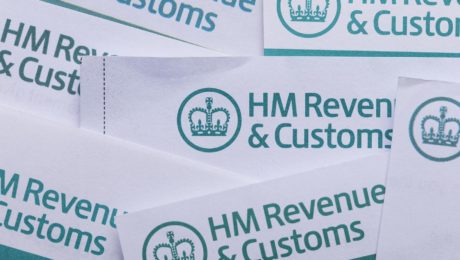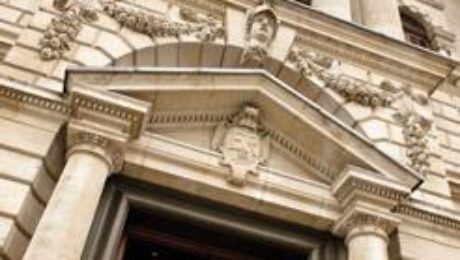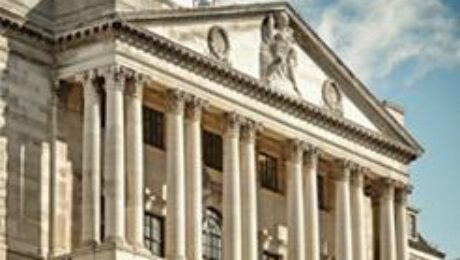HMRC faces ‘declining spiral of service pressures’
The quality of HMRC service has hit ‘an all-time low’ with wait times on phone lines five times longer than just four years ago and online services unable to fill the gap
In the face of funding pressures, HMRC has pressed on with attempts to reduce costs despite its poor performance, meaning that the tax authority and taxpayers ‘have been caught in a declining spiral of service pressures and cuts’, warned a highly critical report from the National Audit Office (NAO).
HMRC is not expecting to meet its telephone performance target this tax year and has not made clear what level of service taxpayers should expect, added NAO.
This was despite spending £881m on the HMRC customer service directorate in 2022-23 and having 21,282 full time equivalent staff. But the outlook for taxpayers is not good, as HMRC has indicated that it is going to have to cut staff by 14% this tax year.
The message is to avoid HMRC helplines wherever possible, and there are signs that many taxpayers do just that with 60% of taxpayers using online services, webchat and the HMRC app to complete transactions.
This still leaves 40%, or at least 14 million taxpayers who could prefer to use the phone to contact HMRC. The only saving grace is that millions of taxpayers avoid ever having to contact HMRC unless they have a problem.
Despite HMRC’s plans to go ‘digital first’, it admits that an estimated seven million taxpayers will still need support to use online services.
But awareness of HMRC’s online services is limited, with NAO reporting that ‘many of HMRC’s customers do not know about its digital services, so it may be able to increase uptake by improving awareness’.
HMRC’s advertising and communications budget to promote digital services has been increased to £3m for 2024-25, up from £1m last year but there is a challenge to persuade people that online services are safe to use.
There is widespread fear felt by taxpayers that they might do the wrong thing based on their own information sourced from the HMRC website especially as most people are not tax experts.
The NAO stressed that ‘despite recent improvements, HMRC does not know enough about how effectively digital services meet customers’ needs’.
For example, less than a third of customers in 2023-24 completed transactions covering fixed-rate expenses, or tax relief for expenses of employment using the interactive P87 form.
‘The high level of avoidable contact that HMRC reports shows that it has not yet optimised its digital channels to meet customers’ needs,’ NAO said.
Taxpayers cumulatively spent 798 years, or seven million hours, on hold waiting to speak with HMRC in 2022-23 – more than double the 365 years spent waiting in 2019-20.
The average wait time was 23 minutes for the majority of 2022-23 when it was just five minutes four years ago, highlighting the rapid deterioration in HMRC service. Advisers answered 22% fewer calls compared with 2019-20, but these took 21% more time to handle on average.
In addition, NAO said: ‘Many avoidable customer calls are caused by HMRC itself for reasons including process failures and delays, and customers chasing progress.’
One of the shocking figures in the report was that HMRC estimated 72% of calls in 2023-24 were caused by ‘failure demand’, which included calls caused by HMRC’s process failures or delays, taxpayers chasing progress and taxpayer errors. This proportion had increased from 65% in 2018-19.
Another sign of the increasing complexity of the tax rules resulted in the length of phone calls with advisers go up from 11:24 minutes in 2019-20 to 13:48 minutes in 2022-23.
While the total number of telephone calls has reduced, the total amount of time HMRC advisers are spending on each call has increased. This means HMRC’s workload has reduced more slowly than reductions in call volumes.
More taxpayers have complex affairs, for example, working for multiple employers simultaneously or as freelancers, meaning they have less straightforward needs, while fiscal drag has also brought more people into the tax system.
As HMRC comes under increasing pressure to respond to a growing demand for help on its phonelines, it has had to abandon plans to cut six helpline services in 2024/25 after an outcry from all the professional bodies and even the Chancellor Jeremy Hunt.
The NAO warned that ‘the move to digital service has not eased pressure on traditional services as much as HMRC expected. The quality of service provided by HMRC telephone and correspondence has been far below the levels expected in recent years, and has not met annual targets.’
In 2022-23, HMRC advisers answered 20.5m calls, out of 38m call attempts.
With HMRC’s call-handling workload falling less than expected, it has not been able to make all the staff reductions it planned. Due to budgetary constraints, it now needs to cut staff numbers by 14% in 2024-25, despite only achieving a 9% reduction over the last five years.
This brutal job cutting programme may now be put on hold, however, as this week the Treasury gave HMRC an emergency £51m of funding to address the phone line chaos.
Gareth Davies, head of the NAO, said: ‘HMRC’s telephone and correspondence services have been below its target service levels for too long.
‘While many of its digital services work well, they have not made enough of a difference to customers, some of whom have been caught in a declining spiral of service pressures and cuts. HMRC has also not achieved planned efficiencies.
‘HMRC must allow more time for these services to bed in and understand the difference they make before adjusting staffing levels.’
The NAO recommends that HMRC develops more realistic plans for cutting the services it is replacing with online services and adopts a more customer-focused approach to encourage the take-up of new services.
It must also ensure that as well as the need to develop not new digital services it focuses on improving its existing digital services, particularly where performance or customer satisfaction is low.
The NAO also said that there should be less reliance on old fashioned means of communication like letters, stating that HMRC should ‘increase opportunities for customers to send correspondence and documentation through secure electronic networks, including HMRC portals, which are cheaper, or faster than postal correspondence for customers to use and easier for HMRC to track and administer’.
For future spending reviews, HMRC should only plan to make staff cuts from changes to its digital services once improvements have taken effect and the benefits can be estimated with confidence.
HMRC should also reduce avoidable and expensive forms of contact, for example by increasing opportunities for customers to send correspondence and documentation through secure electronic networks, and learn from the implementation of its digital projects.
- Published in HMRC
HMRC to replace Government Gateway accounts with One Login
The government is investing £305m in a single login system for taxpayers and agents using online services such as HMRC with the launch of GOV.UK One Login
The new login service has two factor authentication and will be rolled out across all government web services to replace Government Gateway accounts over the next three years.
The project is being led by the Cabinet Office with HMRC one of the first government departments planning to roll out the service.
In future, users will only need a single login to access all central government services, rather than remembering multiple accounts and passwords. Gradually, over time, One Login will replace all existing login and identity checking platforms across central government. Government Gateway is over 20 years old and was first introduced in January 2001.
The Cabinet Office said: ‘The GOV.UK One Login programme as a whole has a cost of £305m, which includes development, implementation, running the system and support for users and services. This is over a three-year period and will see up to 145 services from across government join by March 2025’.
In a bid to prevent fraud, One Login includes two factor authentication, which requires users to set up their account with a code used in addition to the password, for secure logging in.
When a user proves their identity using GOV.UK One Login, there will be sophisticated counter-fraud measures in place to ensure they are who they say they are.
GOV.UK One Login will improve digital inclusion by offering multiple ways for people to prove their identity – including those without photo documentation (like a passport or driving licence) – and access government services online, the Cabinet Office confirmed.
As the rollout is expected to be completed within a year, there will be pressure to transfer millions of Government Gateway individual users to the system.
In a statement, HMRC said: ‘From Spring 2024, HMRC will begin to invite individual customers without existing HMRC online sign-in details to create a GOV.UK One Login account. There will then be a gradual migration of existing Government Gateway customers starting with very small and controlled numbers.
‘HMRC is still in the private testing stage, so precise dates are yet to be confirmed.
‘Initially, only a small number of users will be able to access HMRC services through GOV.UK One Login, with volumes building gradually over time. There will be no sudden switch-off of the Government Gateway service.
‘This measured approach is designed to ensure a high-quality experience for users.’
It is important to note that HMRC will contact individual taxpayers to advise them to migrate.
HMRC stressed: ‘Existing Government Gateway users will be informed when they need to create a GOV.UK One Login account to replace their Government Gateway – they don’t need to contact HMRC.’
‘It will not happen for everyone at the same time, and you do not need to do anything unless we ask you to.
‘You do not need to do anything differently to access HMRC online services, until we prompt you to.’
The scheme is projected to deliver at least £700m of benefits by April 2026, the Cabinet Office said.
This spring, users new to HMRC will have to set up a new GOV.UK One Login. Later in the year, all users returning to HMRC services will be directed to use One Login, rather than Government Gateway.
Agents will continue to use Government Gateway to access their services for the time being and HMRC has not yet finalised details of how the agent rollout will work and the timetable.
Once the system is fully operational, the full range of HMRC and wider government services will be available online through the single login, including income tax, student loans, and Universal Credit, which are currently available through Government Gateway.
At the moment, there is simply a list of links to other pages on gov.uk sites, including find a grant, apprenticeship assessment service and basic DBS checks.
HMRC has issued initial guidance on the new login, stating that ‘GOV.UK One Login is a new way of signing in to government services. It provides a simple way for you to sign in and prove your identity using an email address and password’.
Over time it will replace all other sign in routes including Government Gateway that many customers and businesses currently use.
Going forward, anyone accessing government services online, including HMRC, will automatically be asked to create a GOV.UK One Login.
The One Login service will have to be used by accountants and tax agents although full details of how these accounts will interact with client accounts has not been published.
HMRC confirmed: ‘If you’re a tax agent, or an organisation with a business tax account, you will continue to use Government Gateway until you’re asked to create a GOV.UK One Login.’
There is a new authorisation and identity verification process to sign up to the One Login, which means you will need to have some identification documents such as a passport or driving licence to complete the application.
Users will have to input an email address and include the preferred method to get security codes, either via a mobile number or an authenticator app.
Once you start the registration process, HMRC first checks your email address by sending a six-digit security code to verify the email.
Once an account is created, the system will send security codes to verify identity via text message or authenticator app for mobiles, tablets or computers. Then users can access their account via https://www.gov.uk/account
- Published in HMRC
HMRC stops sending self assessment repayment letters
HMRC will no longer send out letters in the post advising taxpayers of self assessment repayment notifications, claiming they simply caused confusion
The change was announced on 7 December and came into effect immediately affecting notifications about all Bacs self assessment repayments.
This will affect tax advisers and individual taxpayers. Instead of a letter, HMRC will send out a digital confirmation although this will not start immediately as the IT system has to be updated to handle the change.
In an update to accountants and tax advisers, HMRC said: ‘We’re changing how we let you and your clients know we’ve issued a SA Bacs electronic repayment. There is no change to the repayment process itself, so customers will still receive any monies owed to them through their bank as normal.
‘We’ll no longer send a letter informing you or your client of an SA repayment. We often find these letters arrive after the repayment has been made leading to confusion and increased contact from customers.
‘We are making improvements to our IT systems in relation to SA repayments, so we are also temporarily pausing digital notifications from 7 December 2023 while we do this. We’ll let you know when these notifications are reinstated.’
HMRC has clearly judged that the volume of calls about repayment issues is too high and sees this as an area where it can reduce costs. The end of letter communications should reduce pressure on limited resources in call centres, while also saving on the cost of producing letters and postage.
Accountants and individual taxpayers will still be able to view repayment transactions through HMRC online services. The information will be available in agents accounts, where agents can review transactions for their clients. Individuals will be able to access their HMRC online account to review any transactions and can also sign up to receive digital notifications, although this service is currently suspended.
The end of repayment letters was announced at the same time as HMRC seriously curtailed the use of self assessment helplines in the run-up to the tax return season. This will see HMRC call handlers only dealing with the most complex enquiries, while all callers will be met with a message stating that the majority of queries can be handled online on HMRC’s website. They will also be sent a text message, if they have called on a mobile, advising them where to find the information requested.
The reduction in helplines will also hit accountants, with the agents dedicated line handling only the most complex queries during the self assessment season, while HMRC call handlers will not deal with any PAYE-related questions until February.
Accountancy bodies criticised the move, pointing to a major resource issue at HMRC, which has seen a number of service cuts in recent months.
John Barnett, chair of CIOT’s technical policy and oversight committee said: ‘We are concerned that in practice many of their customers will be unable to navigate HMRC’s digital services and will simply give up.
‘Previous trials to limit calls to complex queries, or diverting people to online services, have proven either troublesome or inconclusive.’
- Published in HMRC, Self Assessment
Selling an unwanted Christmas jumper? Watch out for tax trap
Digital platforms like eBay, Vinted and Airbnb will have to report seller data to HMRC from January giving the tax authority access to unparalleled information, warns Miruna Constantin, tax manager at RSM
Are you one of the millions of UK individuals selling second hand clothes on digital platforms? Whether you’ve been caught by the Marie Kondo urge to declutter and detoxify your wardrobe, or have a side hustle on platforms such as Vinted, Vestiaire Collective, eBay or Etsy, HMRC will be keen to find out more about potential untaxed income.
Vinted has over 8m registered sellers in the UK with some users claiming they have turned selling second hand clothing into a full-time job and thanks to new information powers HMRC will start to know about that income.
From 1 January 2024, digital platforms will have to start collecting seller data and pass that over to HMRC to match against taxpayers’ records to make sure people report the right information on their tax returns.
The measures also impact those renting out properties on Airbnb (among other platforms) or people selling their services online, and these platforms have been warned to brace themselves against landing in hot waters with HMRC.
The first reporting deadline for online platforms will be 31 January 2025 and to meet these requirements they will need to implement new ways of collecting seller information so that HMRC can match and verify it against taxpayers’ records to make sure individuals are correctly reporting their income on their tax returns.
There will be hefty fines and penalties for failing to submit reports or submitting ‘inaccurate, incomplete, unverified sellers’ records’ so the platforms will be incentivised to ensure they meet their reporting obligations.
If you are an occasional seller receiving no more than £1,700 for fewer than 30 sales in a reporting period, your information is not required to be provided to HMRC. However, that doesn’t mean you do not have any tax reporting obligations.
Depending on whether you have a profit-seeking motive (for example, some online platform users buy premium items from outlets and then sell them at a profit online), the number of transactions you make, or the nature of the assets you sell, your little side hustle might be seen as trading.
In this case a self-assessment tax return will need to be filed with HMRC and income tax and National Insurance contributions paid accordingly. If you make sales of £1,000 or more in a year, you will need to consider whether a tax return is required.
The good news is the information collected by platforms must be shared with HMRC as well as with sellers, which should help taxpayers get their affairs right. It could however bring a whole new raft of unaware individuals within HMRC’s reach and could make some taxpayers think twice about their wardrobe spring clean.
Considering the fast approaching deadline, digital platforms need to be ready to start collecting information in the New Year, but HMRC should also take steps to ensure that sellers are aware of the potential tax implications they may face and educate them appropriately.
- Published in HMRC
HMRC slashes access to helplines for seven weeks
In the busiest period of the tax year, HMRC plans to significantly reduce access to the self assessment helpline, prioritising only complex queries from Monday
Without prior warning, HMRC has confirmed that from 11 December until 31 January, it will redirect the majority of callers to the self assessment helpline to online services, telling taxpayers to find their own answers to queries about tax returns.
HMRC said that call centre advisers will focus on answering ‘priority queries’, described as ‘those that cannot be easily dealt with online’, as well as supporting the small minority of callers who require extra support or cannot use online services.
However, HMRC has not explained how these priority calls will be ranked and dealt with during this period.
The sudden announcement, with only four days’ notice, follows the abrupt three-month closure of HMRC helplines over the summer and the decision that helplines would be cut by 30% by the end of 2024 to allow staff to be reallocated to jobs in other parts of HMRC.
In the same period last year, HMRC received 1.2 million calls, more than one fifth of the total calls received in the 12-month period.
The service reduction will also affect accountants and tax advisers who will be told to use online services rather than relying on the agent dedicated line to resolve problems.
HMRC said: ‘Agents who call the ADL and whose queries are not specifically related to SA filing, payments or repayments, including agents with multiple client queries, will be redirected to alternative channels or asked to call back in February.
‘During SA peak, ADL will not be dealing with any PAYE-related calls, however we know that many queries can be resolved quickly and easily online. We encourage agents to consider using tools such as the ‘Income Record Viewer’ or the Where’s my reply tool before contacting us.’
The decision has been heavily criticised by accountants and tax advisers.
John Barnett, chair of CIOT’s technical policy and oversight committee, said: ‘Reducing access to HMRC’s self-assessment helpline is misguided.
‘While we understand HMRC’s desire to prioritise where it puts its limited resources, we are concerned that in practice many of their customers will be unable to navigate HMRC’s digital services, and will simply give up.
‘Previous trials to limit calls to complex queries, or diverting people to online services, have proven either troublesome or inconclusive.’
Glenn Collins, head of strategic and technical engagement at ACCA, described HMRC’s service as ‘unacceptably poor’.
‘The dramatically reduced service will be a worry for taxpayers and financial professionals alike,’ said Collins. ‘At a time when queries around self assessment go up significantly, this move by HMRC once again demonstrates it lacks the proper resources that it desperately needs.
‘ACCA has repeatedly called on the UK government to make significant improvements to the HMRC services, including the availability of HMRC agents to resolve basic issues which is currently not being achieved using the current HMRC online services.
‘We stand by our previous statement whereby we referred to HMRC as having unacceptably poor service. The difficulties experienced by accountants in working with HMRC cannot be overstated, and the reduced service offered by the helplines will surely only further exacerbate poor service levels and cause more frustrations at one of the busiest times of the year.’
The influential Treasury Committee was also critical of the decision, particularly the lack of notice about the service reduction.
Chair of the Treasury Committee, Harriett Baldwin, said: ‘Giving the public less than two working days’ notice of a significant reduction in service, while the deadline for self assessment returns looms, is yet another alarming development for an increasingly pressured government service. I have written to the CEO of HMRC in order to get much-needed answers about what this means for taxpayers.’
HMRC rejects any criticism of the downgrade to helplines and CEO Jim Harra told MPs on the Treasury Committee that the tax authority is fully committed to a move to a digital only approach.
It is convinced that many of the calls to the helpline are for trivial requests and said that ‘around two-thirds of calls to the SA helpline can be resolved far quicker through HMRC’s online services. To make all SA callers aware of the department’s extensive online services, recorded messages supported by SMS texts will be used’.
However, recent figures show that nearly one in five taxpayers were not satisfied with HMRC’s online services and it is difficult to resolve complex queries online. HMRC said that most calls are about basic questions which can easily be resolved online, such as updating personal information, chasing on the progress of a registration and checking a Unique Taxpayer Reference number.
Angela MacDonald, HMRC’s deputy chief executive, said: ’This is a busy time for customers who want to get their taxes sorted. We want to help customers resolve any issues in the quickest and easiest way, which is often through our online services.
‘The vast majority of self assessment customers file their returns digitally, so we’re helping them make the next step to resolving simpler queries through our online services.
‘Our expert advisers will be there to help people with urgent and more complicated queries as well as helping the small number who are unable to access our online services.’
Services on the Agent Dedicated Line will replicate the self assessment offer, with agents also being directed to our digital services for suitable queries.
HMRC is transitioning to a digital-first approach and said it was ‘continuing to improve and expand its online services, increasing their capabilities and ease of use so they become the default option for customers’.
Taxpayers who need support to complete their return for the 2022 to 2023 tax year ahead of the deadline on 31 January 2024 have been told to go to HMRC’s online support. More than 97% of self assessment taxpayers file their tax returns online.
- Published in HMRC
Small companies will have to report P&L figures
The government is going ahead with plans to tighten up the accounts filing framework for small companies with mandatory profit and loss figures but has not set out implementation timetable
Under the new rules in the Economic Crime and Corporate Transparency Act 2023, small companies will be required to file a profit and loss account and directors’ report. This will ensure that key information such as turnover is available on the public register. Companies will no longer be able to file abridged accounts.
A spokesperson at the Department for Business & Trade told Accountancy Daily: ‘We have not set out a timetable for implementation of the new rules but any changes will not affect accounts due from 1 January 2024. We need to allow time for Companies House to update their systems. We will be confirming more details about the filing changes in due course.’
‘Requiring more information to be filed will reduce the risk of deliberate misuse of minimal disclosure options to hide money laundering and other fraudulent activity. Ensuring all companies report sufficient information to determine a company’s size and eligibility to file under size specific regimes will improve the value and reliability of the information,’ the government said.
Rather than detailing the filing obligations for small companies andicro-entities in the same section of Companies Act 2006, the Economic Crime and Corporate Transparency Act 2023 splits the requirements into two sections, which aims to make the filing requirements clearer for companies to understand. The new legilsation covers sections 53 to 58 [from page 47 onwards].
Under the new rules, amendments to the small companies filing requirements require the preparation of annual accounts in accordance with section 396 CA 2006.
In future, small companies will be required to file a profit and loss account, and directors’ report. This will ensure that key information such as turnover is available on the public register at Companies House. A company is defined as small if it meets two of the following criteria: turnover of less than £10.2m, £5.1m or less on balance sheet and 50 employees or fewer.
Micro-entities with turnover of less than £632,000, balance sheet of £316,000 and 10 employees or under, will be required to prepare annual accounts in accordance with the requirements of section 396 CA 2006, which requires the preparation of a profit and loss account. They will not have to produce a directors’ report.
There will no longer be an option for micro companies to prepare abridged accounts.
The government said ‘the amendments will make the filing requirements easier to understand, reduce fraud and error, and improve transparency’.
Directors who use the audit exemption rules, including dormant companies, will have to file an exemption statement, identifying the exemption being relied on and to confirm that the company qualifies for the exemption.
This additional statement is intended to act as a deterrent to criminal activity and to provide additional enforcement evidence.
The new rules are also meant to crack down on abuse of dormant company rules.
Evidence from law enforcement agencies shows that some companies file dormant company accounts and claim the dormant audit exemption, despite their bank accounts clearly showing that the company does not meet the definition of a dormant company. The additional statement is intended to act as a deterrent and help Companies House address such offences in the future.
The government plans to make further changes to reporting rules in a future amendment to the Act, including mandating digital filing, full tagging of financial information in iXBRL format, and a reduction of the number of times a company can shorten its Accounting Reference Period.
- Published in HMRC
HMRC clarifies tax on home charging of company cars
HMRC has amended guidance on the tax treatment of electric charging of company cars and vans at residential properties
The costs of charging are now treated as a tax-free benefit, whereas in the past HMRC said that where an employer reimburses their employee for the cost of charging a company-owned, wholly electric car that is available for private use, the reimbursement was taxable as earnings.
HMRC has now changed this position and has updated the EIM23900 manual to reflect their revised interpretation regarding home charging of electric company cars.
Section 239 ITEPA 2003 provides an exemption on payments and benefits provided in connection with company cars and vans. This legislative provision therefore exempts aspects such as vehicle repairs, insurance, and road tax.
HMRC previously maintained that the reimbursement of costs in relation to charging a company car or van at a residential property was not caught by this exemption.
‘Following a review of our position, HMRC now accepts reimbursing part of a domestic energy bill, which is used to charge a company car or van, will fall within the exemption provided by section 239 ITEPA 2003,’ HMRC confirmed.
This means that no separate charge to tax under the benefits code will arise where an employer reimburses the employee for the cost of electricity to charge their company car or van at home.
The exemption will however only apply providing it can be demonstrated that the electricity was used to charge the company car or van.
Employers will need to make sure that any reimbursement made towards the cost of electricity relates solely to the charging of their company car or van.
- Published in HMRC
HMRC late payment interest rate hits 7.75%
HMRC has revised interest rates with late payment bills charged 7.75% from 22 August, the highest rate since 2001
The late payment and repayment interest rates follow the rise in the Bank of England base rate to 5.25% on 3 August and are applied to the main taxes and duties that HMRC currently charges and pays interest. The rates will rise to:
- late payment interest rate — 7.75% from 22 August 2023
- repayment interest rate — 4.25% from 22 August 2023
This means that the late payment interest rate will increase by 0.25% to 7.75% from 22 August. The last rate increase was on 11 July. Rates were last this high in August 2007.
Late payment interest is payable on late tax bills covering income tax, National Insurance contributions, capital gain tax, corporation tax pay and file, stamp duty land tax, stamp duty and stamp duty reserve tax. The corporation tax pay and file rate also increases to 7.75%.
Repayment interest will also be increased from the current 4% rate to 4.25%.
Corporation tax self assessment interest rates relating to interest charged on underpaid quarterly instalment payments rises to 6.25% from 6% for the earlier date of 14 August.
With late payment interest now 2.5% above the Bank of England base rate, HMRC continues to pay lower interest to taxpayers affected by overpayments of tax at 4.25%, up from 4%.
The interest paid on overpaid quarterly instalment payments and on early payments of corporation tax not due by instalments rises to 5% from 4.75% from 14 August.
- Published in HMRC
Call waiting times to be included on HMRC helplines
Following a trial, messages on the estimated time it will take to speak to an adviser were extended to more HMRC helplines from 4 July
The message will be played at the start of the call so taxpayers can make an informed choice about whether they want to hang on, use HMRC’s online services or call back another time.
During the trial period, it was clear that callers abandoned calls as the average wait time halved from 40 to 20 minutes. HMRC did not provide figures on how many callers refused to wait for a call handler and used alternative HMRC services to resolve queries, or called back later when lines could have been less busy.
Call wait time messages are based on the previous day’s average and will be included on the following helplines:
- child benefit;
- Construction Industry Scheme;
- employers;
- National Insurance;
- online services;
- tax credits; and
- VAT.
In the update in the latest stakeholder digest, HMRC said: ‘Expected call wait times are already given on the PAYE helpline. This has proved successful with a significant number of customers choosing to leave the queue and resolve their query elsewhere.
‘We’ve been able to take more calls from customers who still need to speak to us, and wait times reduced from 40 minutes at the start of the trial, to consistently below 20 minutes.
‘We want to be open and transparent about how long our customers can expect to wait and encourage the use of our digital services which are quicker and easier than calling us.’
Late last month HMRC announced plans to shut the self assessment helpline over the summer and transferred the 350 call handlers to other telephone services during the three-month closure. HMRC argued that the decision was taken to improve overall customer service levels which have come under fire as agents, accountants and the public have faced lengthy waits to access HMRC call centres.
HMRC is in the midst of a major back office IT upgrade, which involves moving more services to cloud-based platforms to improve response times.
- Published in HMRC
Four in 10 callers to HMRC cannot get through
HMRC service levels continue to decline as only 61% of callers managed to get through to an adviser by phone in the latest performance report
This marked a 10% decline in successful call connections from an average of 71% over the period April 2022 to March 2023. In the month HMRC received nearly four million calls with 2.9m wanting to speak to an adviser. The previous month HMRC said it had only received 3.23m calls.
On average it took nearly 21 minutes (20:59) to answer calls, while more than two thirds (69%) of callers waited more than 10 minutes to get through to an HMRC adviser.
In March 2023, the 61.3% of positive call connections marked a significant decline from 66.1% a year ago. In November last year, HMRC managed to answer 78.4% of calls, illustrating a worrying drop in service levels over the five month period.
Despite HMRC’s attempts to direct people to web services and webchat to answer queries, there is still very high demand for advice from HMRC staff.
There was also a fall in caller satisfaction with HMRC phone service declining by less than 4% to 75.7% although this figure includes all interaction with phone, webchat and digital services. However, this was the lowest score recorded in the last 12 months.
Recently HMRC said it was transferring call centre staff to handle the huge backlog of post as the performance report showed that 10% of post took more than 40 days to deal with.
ICAS chief executive Bruce Cartwright said: ‘Our members are increasingly telling us that they face severe delays and frustration when dealing with HMRC. Poor HMRC service levels are having a significant impact on taxpayers and businesses.
‘We and other professional bodies, continue to urge the government to invest more in HMRC to make sure they have enough resources to deliver at least an adequate service. Right now, this just isn’t the case.
‘Without an increase in funding and resources, HMRC seems unable to improve their service and support to taxpayers to acceptable levels.’
- Published in HMRC










